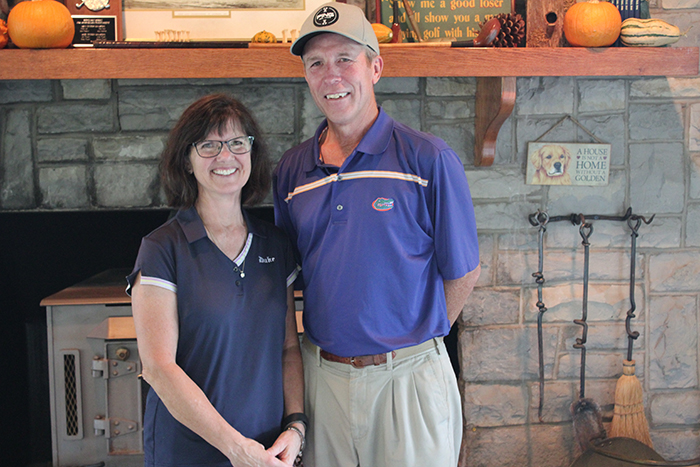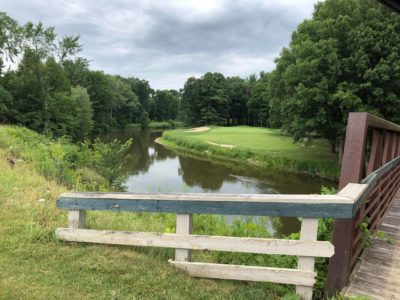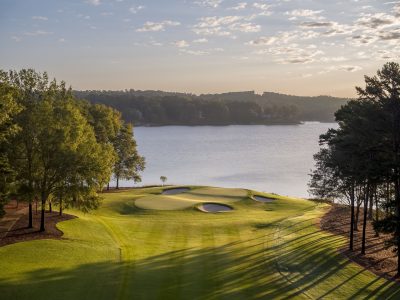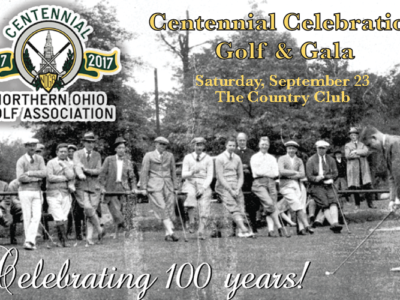By: Fred Altvater
While most of the news in the golf industry centers around golf shops closing, foreclosures or courses shutting down, Lincoln Hills Golf Club, a 9-Hole facility outside of Upper Sandusky, since 1927, recently opened a new short course.
With the golf craze in full swing, during the “Roaring 20’s,” a group of local businessmen decided to commission a golf course be built on an 80-acre tract, east of town. The grounds featured rolling hills and a meandering creek that affects play on seven of the nine holes. It is a local gathering place and you will not find a small community, anywhere in the world, with a higher percentage of avid golfers.
According to the 2010 U.S. Census, Wyandot County has a total population of 22,000. The county seat and largest city, Upper Sandusky has just under 6,600 residents. Up until a couple of years ago, this golf-mad community supported four golf courses. With the closing of Hickory Grove Golf Club, it still supports Lincoln Hills, plus two others.
In 1947, the original owners sold, The Evergreen Golf Club, as it was known, to a pair of brothers, Walter and Ralph Bastel. The name was changed to Lincoln Hills, as it sits alongside the historic Lincoln Highway, and has been owned by the Bastel family since that time.
Ralph’s son, Dave was returning from military service in WW II and was hired as the club manager and professional. Dave and his wife Barbara began a family and raised their three daughters, Carolyn, Jane and Linda, plus their son, young Dave on the course.
Working on the course and in the shop provided a place to keep the kids busy and out of trouble. With minor tweaking, the course remains primarily the same as it was in 1927.
Dave Sr. was killed in a car accident near the course on Highway U.S. 30 and the family pitched in to help their mother keep the course open.
When young Dave graduated from Bowling Green State University in 1979, he returned to become the Head Professional, Manager and Greens Superintendent. He and his wife Debbie have become an institution in Wyandot County and have served the golfing public for nearly 40 years.
In 1985, the family purchased a plot of land adjoining the course. A driving range was added, with plans to build an additional nine holes. Dave began clearing trees and laying out a course, but when the economy took a turn for the worse, after 9-11, and the golf industry entered a downsizing phase, he put those plans on hold.
Finally, with golf returning to popularity over the past few years and with the encouragement of some local Golfaholics, Dave decided to revisit his expansion plans.
Jack Nicklaus and leaders in the golf industry have touted the need for more short courses to satisfy busy American’s need to enjoy a few quick holes and spend less time at the golf course. With that in mind, Dave decided to leave the driving range untouched and build a four-hole loop that traversed around it before returning to the clubhouse.
Using a part of the first tee, he constructed an opening par-3, which uses the ever-present creek to protect the front of the green. The next is a dog-leg left par-4 with an elevated tee shot to a right to left canted fairway. The third hole is a short tree-lined dog-leg right par-4, which requires an accurate tee shot, plus an approach shot to an elevated green, reminiscent of a classic Donald Ross design. The final hole, a par-3, can play as short as 100 yards or be stretched to over 200 yards, when the back tees are completed.
The course was a design collaboration of Dave and his son, Ben, a PGA Professional and Head Pro at Worthington Hills Golf Club in Columbus. The work was completed using all local labor, most of that being volunteered. Long-time members, Robbie Lee and Mike Kraus were just two of the work force that made construction of the new “Loop” a community effort.
Short courses are springing up at many golf resorts around the country. They allow for a quick round or an “emergency nine,” to satisfy wagers among competitors.
Dave has found that his junior members and high school golf teams enjoy the short course. As daylight hours become scarce in the fall, junior golfers can practice on the range, or putting green after school and still play a few holes before dark. Senior golfers and higher handicap golfers also like the shorter course and are enjoying its benefits.
The course just celebrated its 90th year of operation, with the opening of the new “Loop.” Not only has Lincoln Hills survived the downturn in the golf industry, they have managed to remain a family-run and family-owned business for 70 years.
In addition, the Bastel family has spawned two LPGA and Symetra Tour Professionals, three successful NCAA Division I golf coaches and seven PGA Professionals.
Lincoln Hills Golf Club has survived and prospered with the support of this small rural community and the capable management of Dave Bastel and his family. With so many of the third generation of Bastels in the golf business, it looks like it may survive for another 100 years.










